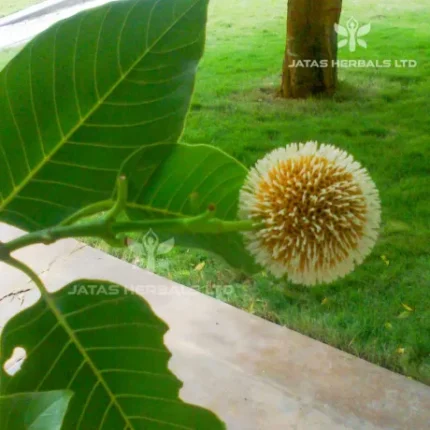Two varieties of Sariva are known from Caraka’s time. He enumerated ‘AnantŒ’ in Kaiyadeva nighantu and ‘Gopavalli’ in Madhura skandha. Though Caraka and Sushruta quoted Sariva dvaya at several instances, Vagbhata appears to be quite on this aspect. In the Nighantus white (Sveta) and black (Krishna) varieties are mentioned. Dhanvantari Nighantu indicates that the black variety as Krishnamula (with black root). Sodhala considered the white variety as Utpala Sariva.
Bhavamishra described that Krishna Sariva is Characterized by the leaves simile to that of Jambµu and possessing great aroma. He further denoted white variety as ‘Gopa’ and black variety as ‘Gopavalli’.
Dalhana commented that Sariva and Utpala Sariva are the names of same plant.
Scholars in the modern era have confirmed the following botanical names for the above varieties :
Sveta Sariva– Hemedismus indicus R. Br.
Krishna Sariva– Ichnocarpus frutescens R. Br.
Since the term ‘Jambu patra Sariva’ is mentioned, Cryptolepis buchanani Roem & Schult is made as the botanical source for it. At present 70-80% of the market samples of Sariva are Decalepis hamiltonii Wight & Arn which are bulky in size and less costly thant H. indicus. Due to indiscriminate wild collection, D. hamiltonii is listed as endangered now. [Still, H. indicus is abundantly available in wild but problem with labour involved in collection is the cause for scarcity].
Botanical Description–
(1) H. indicus– A slender twining or prostrate perennial with terete stem. Leaves– From broadly obovate to oblong-elleptic, linear or linear-lanceolate, obtuse or apiculate. Flowers– small, yellow or greenish-purple in opposite, crowded subsessile cymes. Fruits– follicles.
(2) I. frutescens– A climbing shrub with rusty-tomentose branches. Leaves– variable, opposite, elliptic-oblong or lanceolate, tomentose beneath, glabrous above. Flowers– Purple, minute, in long terminal and axillary paciculate cymes. Fruits– follicles, slender, cylindric, curved.
Major Chemical Constituents–
- indicus– Hyperoside, rutin, desinine, hexatriacontane, -sitosterol; hemidesminine, hemidesmin-1 and hemidesmin-2.
Part Used– Root
Dosage– Infusion 50-100 ml, paste 5-10 g., powder 3-5 g.
Research–
(1) The aq. Extract caused a slight increase in the urinary flow in rats. Alcoholic & aq. Extracts also led to a rise in the BP and splenic contraction in dog and also contraction of the isolated guinea pig ileum. An increase in the cardiac rate in rabbit was noticed with the aq. Extract (Satoskar et al., 1962).
(2) A saponin from it was found to have anti-inflammatory activity (ICMR, 1968-69).
(3) The PE, chloroform and alcoholic extracts of roots showed anti-bacterial activity against Staph. Aureus, Staph. Adbus, Sal. Typhosa, Vib. Cholera, Esch. Coli etc. (ICMR Bulletin, 1972).
(4) The essential oil exhibited marked antibacterial activity against B. protens, Pr. Aeruginosa, Staph. Pyogenes and Esch. Coli (Prasad et al., 1983).
(5) The aqueous extract of whole plant (0.05 mg/ml) showed antiviral activity against Ranikhet disease virus (Dhar et al., 1968). The antiviral activity may be due to the presence of interferon-like factors in the plant (Babbar et al., 1970).
(6) The ethyl acetate extract exhibited significant anti-inflammatory activity in both acute and subacute methods of inflammation (Dutta et al., 1982).
(7) The root is used as anti-leprotic (Gupta, 1981); plaque formation suppressant (Namba et al., 1985); as nematocidal (Kiuchi et al., 1989); as weak antifilarial (Suresh & Rai, 1990) and as an anti-allergenic in allergic conjunctivitis (Sharma et al., 1994).
(8) It showed immunomodulator activity and immuno-suppressant activity. It decrease the phagocytosis in experimental studies (Atal et al., 1986).





Reviews
There are no reviews yet.